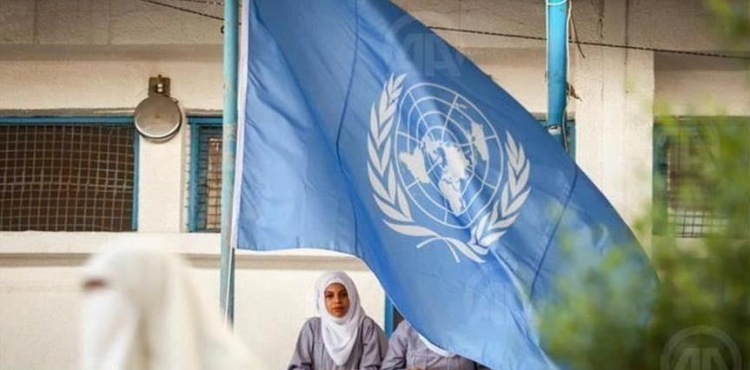The Agency for Development and Employment of Palestinian Refugees "UNRWA" expressed, on Friday, its categorical rejection of what was stated in the European Parliament´s statement about the educational materials it teaches in its schools in refugee areas.
In a statement, UNRWA said that it is disappointed with the language adopted by the European Parliament in its disclosure decision regarding the implementation of the European Union budget for 2019, which implies that UNRWA is teaching and disseminating hate speech and encouraging violence in its schools.
UNRWA stressed that, as a United Nations agency, it has zero tolerance for hatred or incitement to violence or discrimination, and that it categorically rejects these baseless assertions, stressing that its educational materials support and reinforce the United Nations principles and values ​​of neutrality, human rights, equality and non-discrimination on the basis of Race, gender, language and religion.
She said that she uses the curricula of the host countries in all her fields of work, and she reviews the content of educational materials extensively to ensure that they are in line with the values ​​and principles of the United Nations, and in the rare cases where it is found that there is a contradiction with these principles and values, a strong and effective system is applied to address them.
She added, "The suggestion that hatred is widespread within the agency and its schools is not only a false and misleading claim, but also legitimizes attacks seeking to promote sensational and politically motivated news that deliberately seeks to discredit UNRWA and harm the most vulnerable segment of society, namely children. Palestinian refugees. "
“The European Parliament’s call for an open source platform to publish all of our educational materials is misplaced: UNRWA recently launched a central digital learning platform that hosts our educational materials for teachers and students. This platform provides teachers and administrators with a safe and centrally monitored system that includes a rigorous review process for all Contents through the lens of humanitarian principles, and this approach ensures agency-wide alignment and alignment with educational goals and United Nations values. ”
UNRWA’s statement reiterated its assertion that it pursues a zero-tolerance policy with regard to any deviation from the principles of the United Nations, indicating that it realizes that the risks cannot be completely zero when working in complex humanitarian conditions and in a highly politicized environment. However, the agency spares no effort. “To reduce the risks and ensure that violations of the values ​​of the United Nations remain at an absolute minimum. We have duly informed the members of Parliament of this important development and updated them on developments related to it. We deeply regret that UNRWA’s investments were ignored by many members of the European Parliament in its own resolution. Disclaimer regarding the implementation of the European Union budget for the year 2019. ´
He said, "The European Union and UNRWA have worked in partnership for 50 years in support of Palestinian refugees, and the European Parliament has always been a major player in this partnership. The European Union’s investment in UNRWA has enabled more than 2.5 million Palestinian refugees to graduate from UNRWA schools, and to develop Their full potential and contributing to the prosperity and stability of the Middle East. Many external parties have endorsed the quality and content of education provided by UNRWA, including the distinguished program on human rights, conflict resolution and tolerance, and a number of former UNRWA students have joined world-leading institutions or joined Scientific research groups in some of the most distinguished research centers in the world, and there is no doubt that these achievements are far from the allegations that portray UNRWA as a tool of hatred. On the contrary, they are an antidote in this highly troubled region.
UNRWA stressed that oversight and accountability is vital for any organization, welcoming the opportunity to receive any member of the European Parliament in any of its 711 schools in order to gain direct insight into the environment, the teaching process and interact with students and educators.












